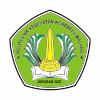Pengetahuan dan Status Gizi dengan Siklus Menstruasi Remaja Putri
DOI:
https://doi.org/10.31290/nj.v1i3.3751Kata Kunci:
pengetahuan; status gizi; siklus menstruasi; remaja putriAbstrak
Background: Biological, psychological and social changes make adolescents a vulnerable group and need special attention. Optimal nutritional status is indirectly influenced by good knowledge. Meanwhile, the regularity of the menstrual cycle is considered an important factor in reproductive health. Objective: The aim of the study was to determine the relationship between knowledge and nutritional status with the menstrual cycle of female adolescents.. Design: This analytic observational study used a cross sectional design. Sampling using a simple non random technique. Nutrition knowledge level data obtained from nutrition knowledge questionnaire with good and poor categories. Body mass index for age (BMI for age)) is used to categorize nutritional status. There are two categories for the menstrual cycle's characteristics: normal and abnormal. The menstrual cycle survey was created as a Google form and administered online. Results: Respondents in this study were 88 students of SMA Negeri 1 Kroya. The study found that 55 percent of respondents had poor nutritional knowledge. The majority of respondents' nutritional status in this study was good nutrition (66 percent). Research found as many as 9 percent of respondents are more nutritional status. Research has found that more than 70 percent of respondents have abnormal menstrual cycles. This study found no relationship between knowledge and the menstrual cycle in young women and there was no relationship between nutritional status and the menstrual cycle in young women. Conclusions: Nutritional knowledge and nutritional status are not statistically related to the menstrual cycle in young women at SMAN 1 Kroya. The majority of respondents have insufficient knowledge of nutrition, so it is important to promote balanced nutrition for young women to increase their knowledge of nutrition
Referensi
Dewi, P. L., & Kartini, A. (2017). Hubungan Pengetahuan Gizi, Aktivitas Fisik dan Asupan Energi, Asupan Lemak dengan Kejadian Obesitas pada Remaja SMP. Journal of Nutrition College, 6(3), 257–261. https://doi.org/10.14710/JNC.V6I3.16918
Fitriningtyas, E., Redjeki, E. S., & Kurniawan, A. (2017). Usia Menarche, Status Gizi, dan Siklus Menstruasi Santri Putri. Preventia?: The Indonesian Journal of Public Health, 2(2), 58–56. https://doi.org/10.17977/UM044V2I2P58-56
Juliana, I., Rompas, S., & Onibala, F. (2019). Hubungan Dismenore dengan Gangguan Siklus Haid pada Remaja di SMAN 1 Manado. Jurnal Keperawatan, 7(1). https://doi.org/10.35790/JKP.V7I1.22895
Juliyatmi, R. H., Handayani, L., Ahmad, U., Jalan, D., & Soepomo, S. H. (2015). Nutritional Status and Age at Menarche on Female Students of Junior High School. International Journal of Evaluation and Research in Education (IJERE), 4(2), 71–75. https://doi.org/10.11591/IJERE.V4I2.4494
Jung, E. K., Kim, S. W., Ock, S. M., Jung, K. I., & Song, C. H. (2017). Prevalence and related factors of irregular menstrual cycles in Korean women: the 5th Korean National Health and Nutrition Examination Survey (KNHANES-V, 2010–2012). Journal of Psychosomatic Obstetrics & Gynecology, 39(3), 196–202. https://doi.org/10.1080/0167482X.2017.1321631
Kemenkes. (2010). Laporan Nasional?: Riset kesehatan Dasar.
Kumar, A., Seshadri, J. G., & Murthy, N. S. (2018). Correlation of Anthropometry and Nutritional Assessment with Menstrual Cycle Patterns. Journal of South Asian Federation of Obstetrics and Gynaecology, 10(4), 263–269. https://doi.org/10.5005/JP-JOURNALS-10006-1603
Newman, B., & Newman, P. (2020). Theories of Adolescence Development. Academic Press Elsevier Inc.
Nuryani. (2019). Validitas dan Reliabilitas Kuesioner Pengetahuan, Sikap dan Perilaku Gizi Seimbang Pada Remaja. Ghidza: Jurnal Gizi Dan Kesehatan, 3(2), 37–46. https://doi.org/10.22487/j26227622.2019.v3.i2.13232
Pangestika, A. (2020). Hubungan Antara Lokasi dan Persepsi Tentang Tempat Tinggal dengan Penggunaan Jamu untuk Mengatasi Menstruasi Tidak Teratur. Universitas Muhammadiyah Surakarta.
Rachmayani, S. A., Kuswari, M., & Melani, V. (2018). Hubungan Asupan Zat Gizi dan Status Gizi Remaja Putri di SMK Ciawi Bogor. Indonesian Journal of Human Nutrition, 5(2), 125–130. https://doi.org/10.21776/UB.IJHN.2018.005.02.6
Rakhmawati, A., & Dieny, F. F. (2013). Hubungan obesitas dengan kejadian gangguan siklus menstruasi pada wanita dewasa muda. Journal of Nutrition College, 2(1), 214–222. https://doi.org/10.14710/JNC.V2I1.2106
Simbolon, P., Sukohar, A., Ariwibowo, C., & Susianti, S. (2018). Hubungan Indeks Massa Tubuh Dengan Lama Siklus Menstruasi Pada Mahasiswi Angkatan 2016 Fakultas Kedokteran Universitas Lampung. Jurnal Majority, 7(2), 164–170. https://juke.kedokteran.unila.ac.id/index.php/majority/article/view/1869
Sinaga, E., Saribanon, N., Suprihatin, & Sa’adah, N. (2017). Manajemen Kesehatan Menstruasi. Universitas Nasional , IWWASH.
Soekirman. (2011). Ilmu Gizi dan Aplikasinya untuk Kelaurga dan Masyarakat. Direktorat Jendral Pendidikan Tinggi Departemen Pendidikan Nasional.
Türk, O., Dergisi, S. B., Hizli Güldemir, H., Kiyak, ?., Fulya, A., Eryilmaz, ?., & Gasanova, P. (2020). Investigation of Changes in Nutritional Status and Anthropometric Measurements Depending on the Menstrual Cycle in Women: A Cross-Sectional Study. Online Turkish Journal of Health Sciences, 5(3), 406–414. https://doi.org/10.26453/OTJHS.599949
World Health Organization. (2017). Adolescent health in the South-East Asia Region. https://www.who.int/southeastasia/health-topics/adolescent-health
Wu, X. Y., Zhuang, L. H., Li, W., Guo, H. W., Zhang, J. H., Zhao, Y. K., Hu, J. W., Gao, Q. Q., Luo, S., Ohinmaa, A., & Veugelers, P. J. (2019). The influence of diet quality and dietary behavior on health-related quality of life in the general population of children and adolescents: a systematic review and meta-analysis. Quality of Life Research, 28(8), 1989–2015. https://doi.org/10.1007/S11136-019-02162-4/FIGURES/6









